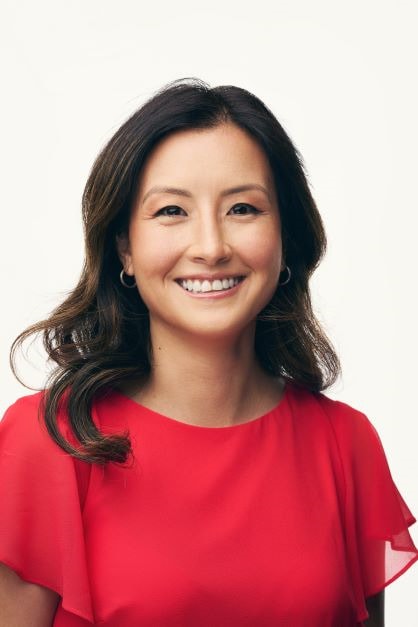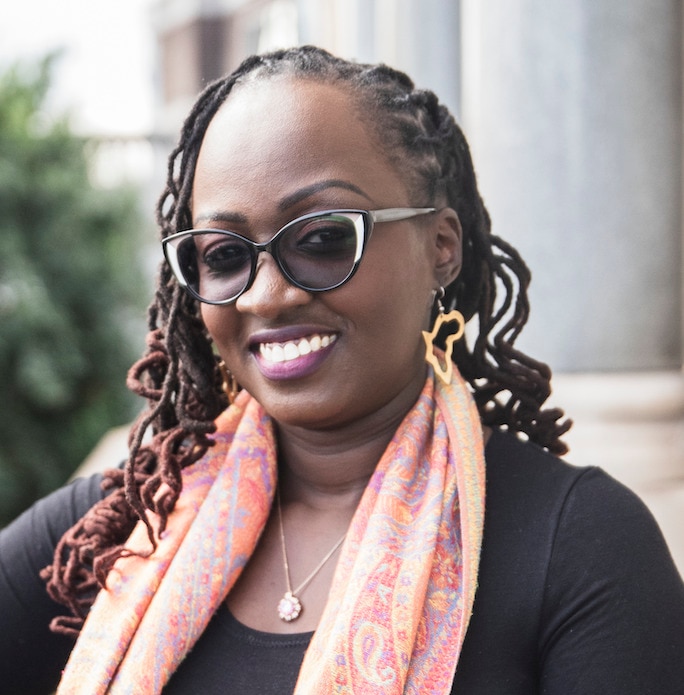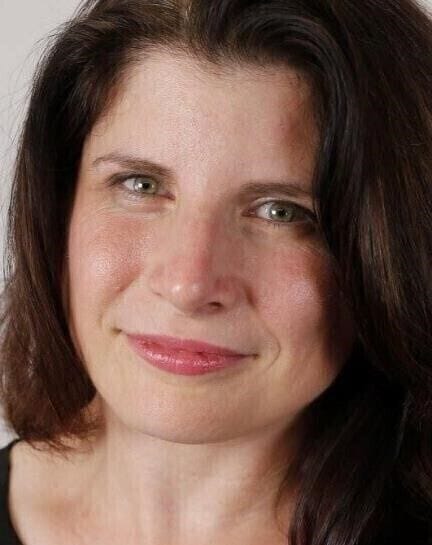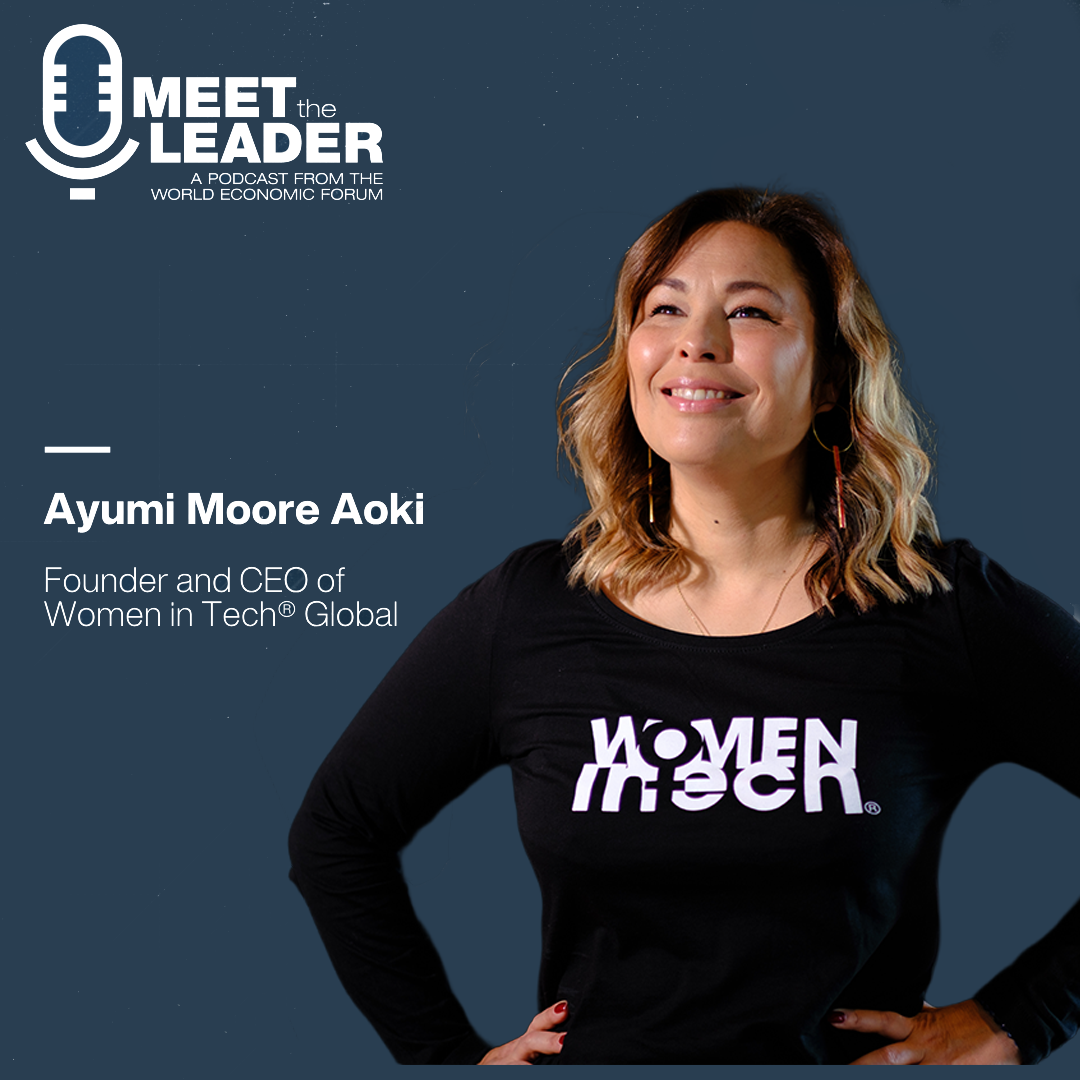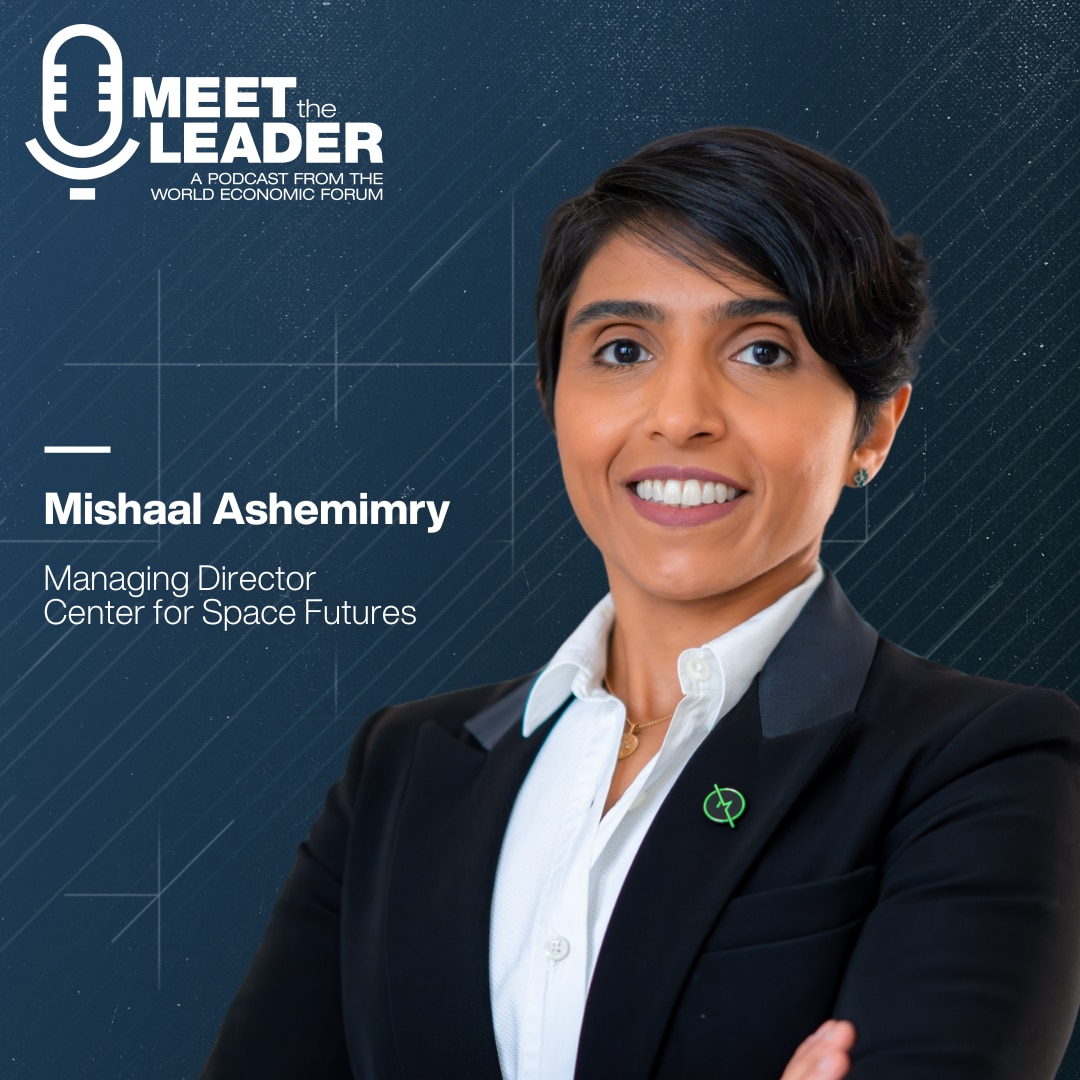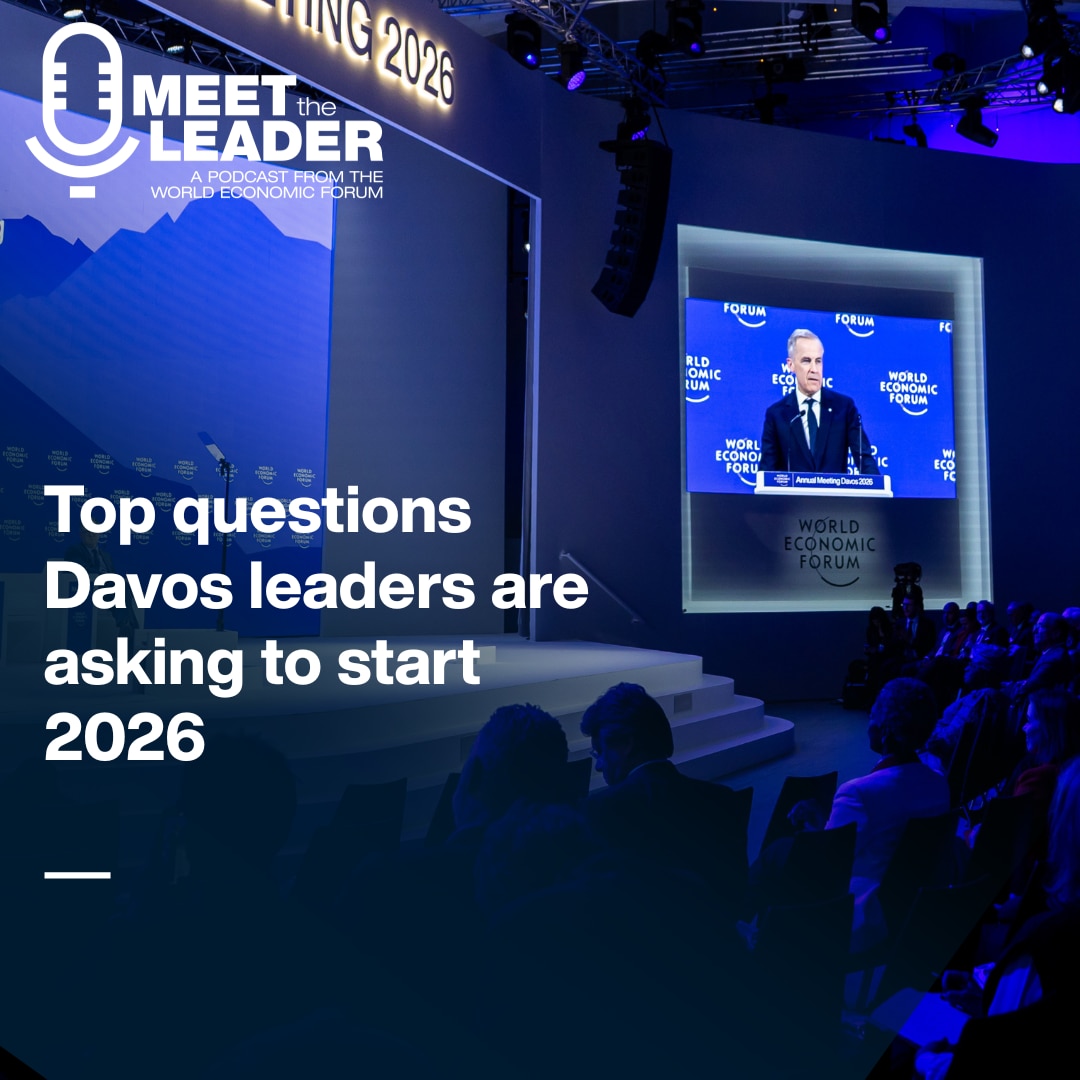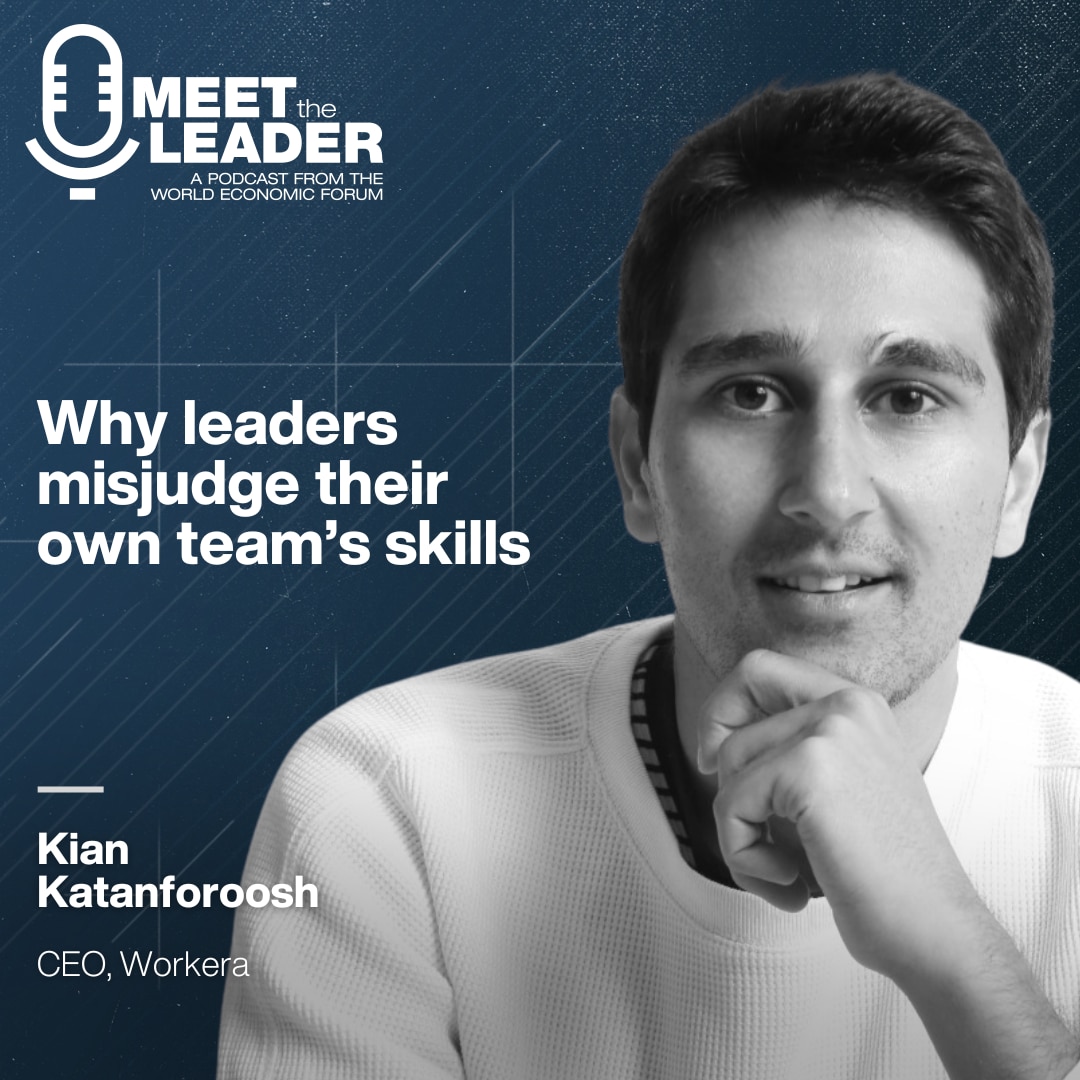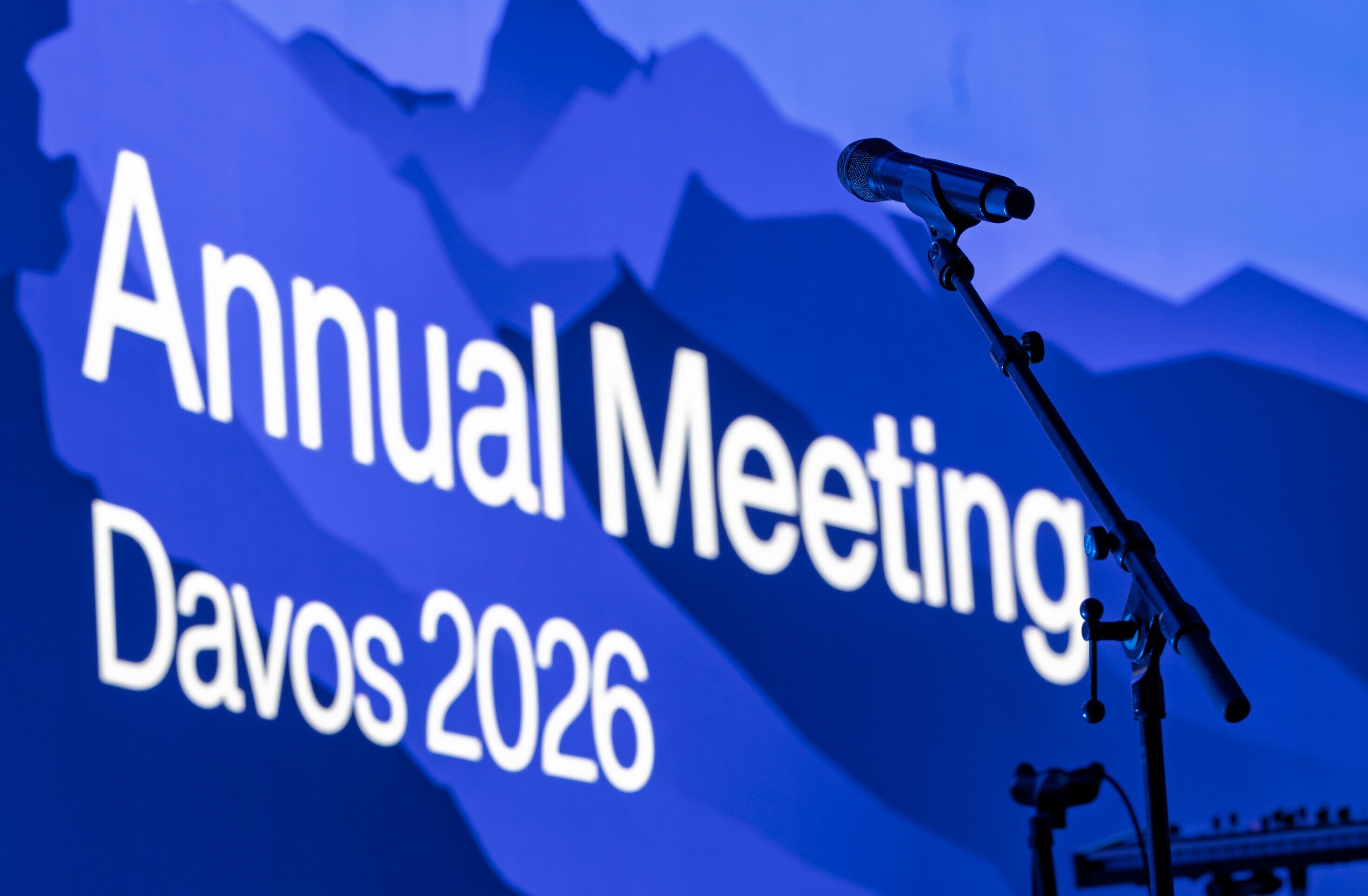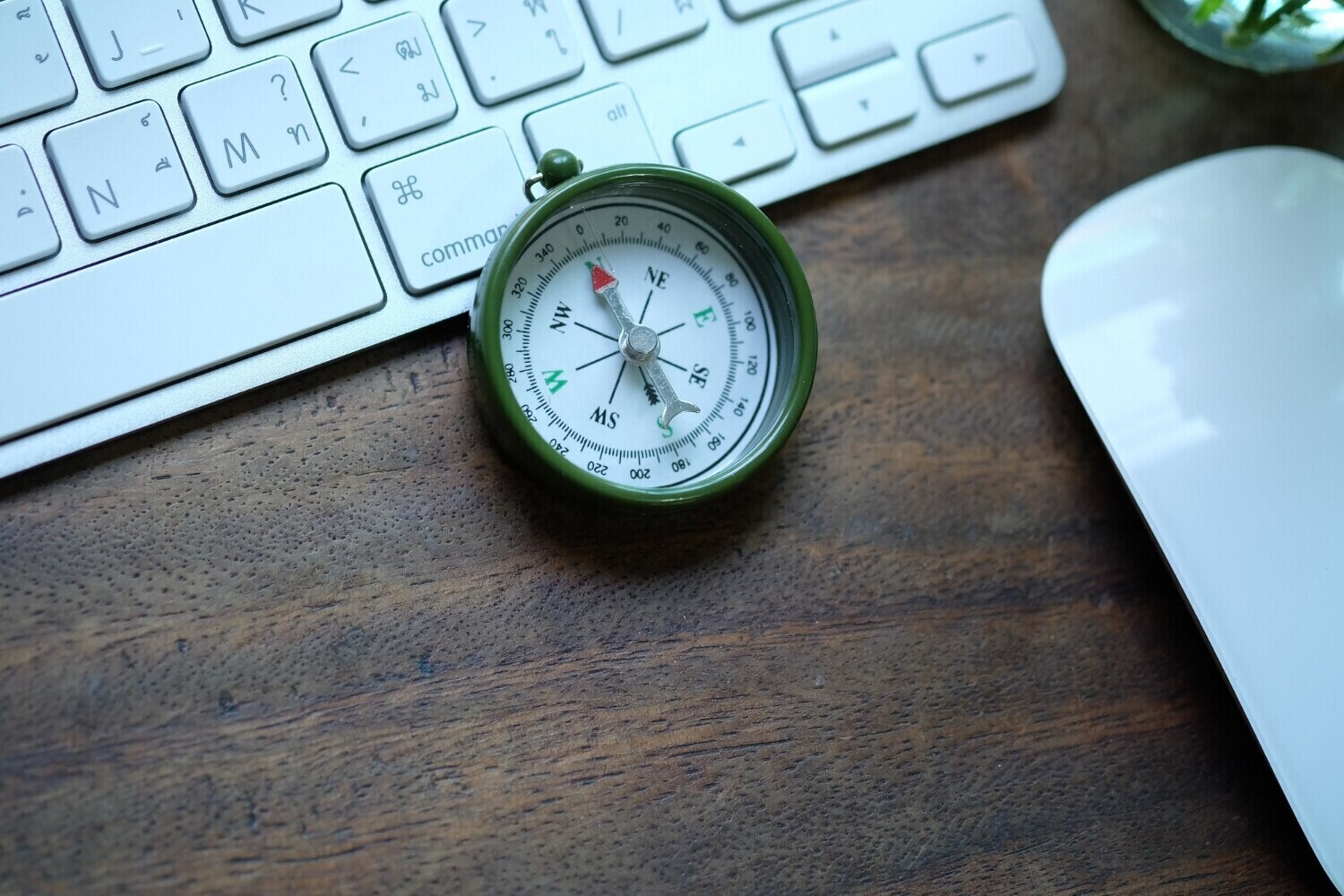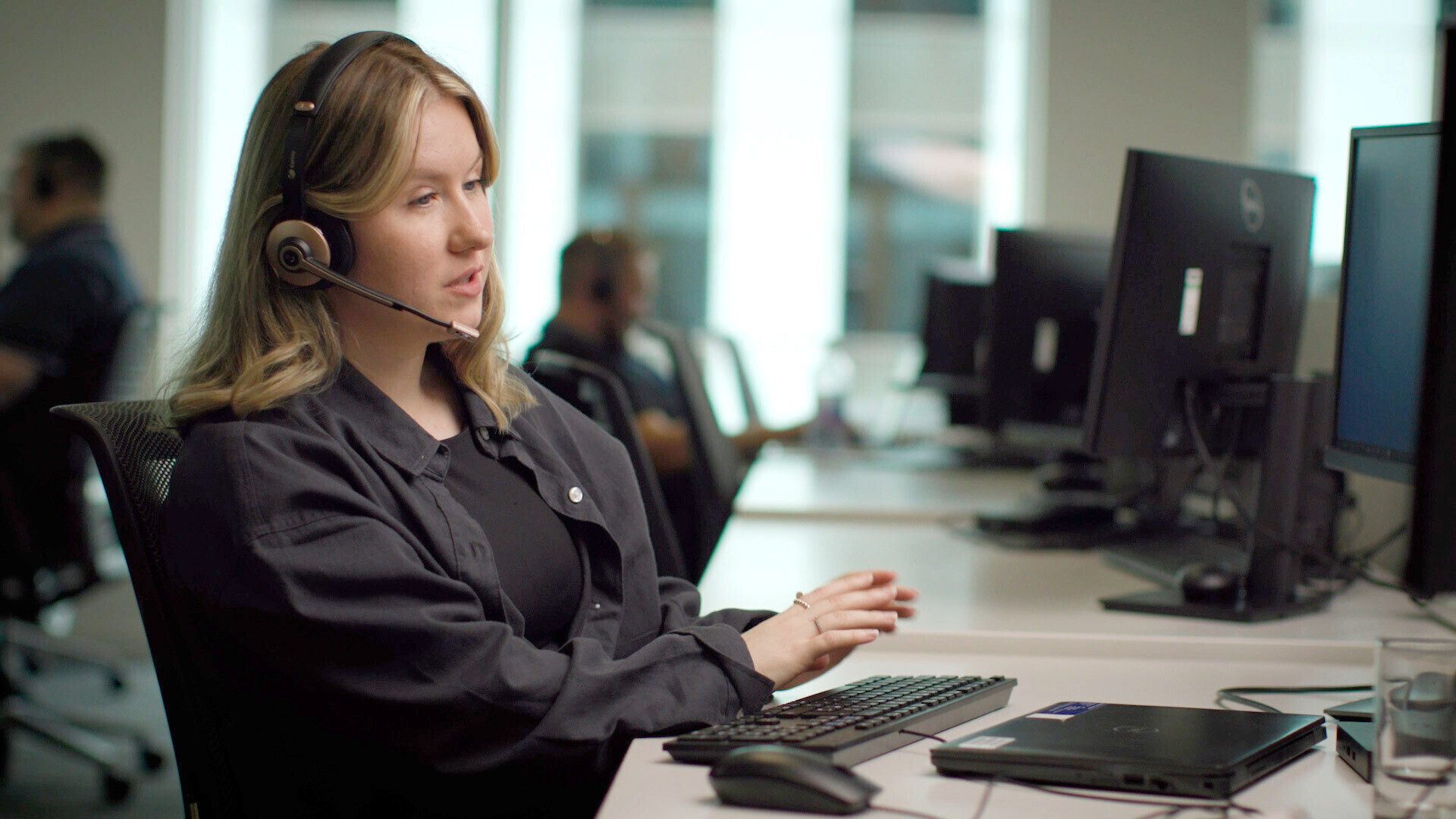7 women leaders on the books that shaped their lives
播客文字稿
Linda Lacina, Meet The Leader Welcome to Meet the Leader, the podcast where top leaders share how they're tackling the world's biggest challenges. In today's episode, we share the books that have shaped top women leaders, books that can help anyone navigate a changing world.
Subscribe to Meet The Leader on Apple, Spotify, and wherever you get your favorite podcasts, and don't forget to rate and review us. I'm Linda Lacina from the World Economic Forum, and this is Meet the Leader.
Angela Oduor Lungati, Ushahidi That book blew my mind. It's changed how I look at the world.
Nadya Okamoto, Period Someone who reads that book, it might change the way you think about how you spend your time and who you surround yourself with.
Yie-Hsin Hung, State Street Global Advisors It's really helped me to reframe every time that I found myself in a new situation or a new role, just taking a step back and thinking about what are the critical things I really have to get right as a leader.
Linda Lacina, Meet The Leader Our Global Gender Gap report is out. That is an annual publication that reminds us of the progress the world has made in things like politics and economics and leadership, bridging gaps. It's also an annual look at work still to be done.
It will be more than a century once again before there is full equality around the world. Still, women are making a mark in a range of fields and industries And these women are shaped by a number of influences. Their experiences, the people who have championed them, the pioneers who came before them, and of course, something as simple as books.
We will share a range of books that have shaped women around the world, books that will help you be sharper at your own role, and how anyone can think about big problems.
We'll get started with Liz Centoni. As Cisco's Chief Customer Experience Officer, she's a leader in this 30,000 person organization helping customers make the most of their technology investments. Being innovative in this role means pushing for new thinking.
To this end, she recommends one book that can help any of us get more comfortable with the unpleasant side of change. Her book, The Courage to Be Disliked by Akira Kishimi and Fumitake Koga.
Liz Centoni, Cisco The courage to be disliked, I think the number one thing I loved about that is the power, your power. And I've struggled with this a little bit. And it's funny, this week, I say funny is most of the conversations have been about AI and agentic AI and when is that coming into CX? And we're experimenting with that. But I'm going, boy, were talking about giving a virtual agent agency.
And yet what we don't talk about very often is around the agency that we have, the power that we have. And when you know that you have that agency, you don't need to be part of the group think. It's not just about the recognition because it's important, especially one of my mentors once told me men are promoted on potential, women are based on performance. I think that's super wise. We're like, OK, if it's on performance, I need to make sure that I'm recognized.
But when you step back and you look at it and go, hey, if I'm doing the right thing. And it's not just about being recognized. It's not about being the loudest voice in the room. That's where the pause comes in. It's about being intentional. It's about knowing that the authenticity that you can bring forward and the power and the agency that it gives you -- that book has helped me immensely, because I can't remember who recommended it to me, and I thought, what an odd title, The Courage to be Disliked. Even the person who says, I'm okay if people don't like me, I don't quite agree because as humans, we want people to like us. But separating that out in terms of going, there's an agency that you have in terms of the power.
You don't need validation for everything. I actually saw a great quote that says, "You're not a parking ticket, you don't need to be validated."
Linda Lacina, Meet The Leader Alicia Chong Rodriguez is the founder of Bloomer Tech. That's a startup that integrates medical grade sensors into everyday garments, such as a wearable bra that collects data and signals from the female body to better understand the workings of a woman's heart, her lungs, her hormones, and her metabolism, helping to reduce mortalities and improve outcomes all while bridging critical data gaps in women's health.
She shared a book that can help anyone think more sharply on this topic. Her book, The Vagina Business by Marina Gerner.

Alicia Chong Rodriguez, founder, Bloomer Tech I think it's amazing to read a book that compiles all of this history around the women's rights movement, going into the Vagina Monologues, and now we're in the vagina of business and that part of innovation because we are building a world that includes all of us and not just some of us, and we're thinking about all of the different dynamics that create change to make this world better because we need our health. Health is the new wealth so that we can actually make a difference in everyone's lives. That book gives a lot of the different perspectives in what the health of women actually is and how businesses are going to disrupt what we've seen over our lifetime so far.
Linda Lacina, Meet The Leader Nadya Okamoto is a social entrepreneur who got her start founding a nonprofit as a teenager that distributed tampons and menstrual pads to homeless women in San Francisco. It's an organization that eventually grew to become one of the largest youth nonprofits in the world. In her work, she learned too late that the hard driving girl boss culture wasn't all it was cracked up to be.

Nadya Okomoto, August: I think at times in my life, the biggest obstacle in my career has been burnout. Conditioning myself to derive my self-worth from work, and attachment to kind of the success that I found from external validation.
I came into my career in 2014, which is kind of when girlboss culture was like at an all time high, right? And I think it was all about hustle. And I mean, there were posters on the wall of every co-working space that said, "no sleep until I die" and "work hard, play harder." And it was very much kind of labeling rest and joy, personal joy is like a waste of time.
And I don't think that that's true at all. And if anything, like being exhausted doesn't make you the best leader, it makes you make mistakes and forget things and drop balls of what you're trying to juggle. And I think it's very different now. Now I l prioritize my rest, and I prioritize my boundaries because I recognize that, like when I'm present and awake and energized, that's when I do my best work.
l prioritize my rest, and I prioritize my boundaries because I recognize that, like when I'm present and awake and energized, that's when I do my best work.
”Linda Lacina, Meet The Leader She's now the founder of Period brand August, and she shared with me a book that reminds all of us to make time for ourselves, especially as leaders. I'll let her tell you more.
Nadya Okamoto, Period I would actually say the most influential book in my career has been Pleasure Activism by Adrienne Marie Brown. And it's really about just like how capitalism has just bred us to be like depressed robots who are obsessed with utility and finding pleasure in our lives and in sex and work and life is the way that you can best kind of reclaim life for yourself. As someone who reads that book, it might change the way you think about how you spend your time and who you surround yourself with.
Linda Lacina, Meet The Leader Some books helped even experts see things in new ways. That was the case with Kara Alaimo. She is a professor at Fairleigh Dickinson University and the author of a book of her own, Over the Influence: Why Social Media is Toxic for Women and Girls and How We Can Take it Back. She shared a few books that deepened her knowledge of systemic barriers, books that can help anyone.
Kara Alaimo, Fairleigh Dickinson University So I recently wrote a piece for Shepherd recommending the five books about being a woman in this sexist, misogynistic world that I recommend. One of them is Down Girl by Kate Mann, and she defines sexism, which is men thinking they're better than women. And she defines misogyny, which is men punishing women for causing displeasure to them. And I think once you know those definitions, you find examples everywhere you go.
I'm also a big fan of Hood Feminism, which is a really powerful account of so many of the issues that black women and girls are up against in our society. I also really like Caroline Criado Perez's book, Invisible Women, which looks at how our society has literally been built for men. And so things like public transport systems are designed to get men where they typically go, to the city centre for work, and often not designed very well to get women where we often go, which is all over town caring for people. So after I read this book, it all of a sudden started to make sense to me why my car's voice recognition system never seems to understand me, because they tend to be trained on men, or things like why there's always line for the ladies' room in public places, so that's another great book I recommend.
I think it's so important for all of us to recognize what sexism and misogyny are and to call them out in every aspect of our lives, both offline and online. When we see them, we need to have conversations with people. We need to tell people what's wrong with their behaviour, what's right with what they've said or how they've judged women. And ultimately, we needs to socially stigmatize these practices.
Linda Lacina, Meet The Leader Makiko Ono is the CEO of Suntory Beverage and Food and the first ever female CEO at Suntory. She's spearheading an effort to bring more female leadership into the company to reach 30% of its management held by women by 2030. That's compared to 7% when she took the CEO role. Here's what’s needed for any company to bridge this gap.
Makiko Ono, Suntory Beverage and Food We need to start a lot of initiatives. For example, in the talent pipeline, we need to put at least one female executive in the pipeline for each senior leader. And of course, for female workers, they need to understand there will be a potential or possibilities for them to open up the door, like I did. So sometimes, you know, if they didn't see role model, they get afraid. But it's not the case. I always told my female members, you can't say you don't have a role model. You need to be a role-model. You need explore and open the door for the next generation.
You need to be a role-model. You need explore and open the door for the next generation.
”Linda Lacina, Meet The Leader As a pioneer in her company, she understands the power of uncertainty.
Makiko Ono, Suntory Beverage and Food There is a phrase I always give to my team, to my employees. The best way to predict future is to create it. Predicting the future is not easy. We need to have accountability of what we're going to do. And so we create the future.
Linda Lacina, Meet The Leader As a result, it makes sense that her book recommendation is a classic mystery.
Makiko Ono, Suntory Beverage and Food When I look back on my childhood, I was always liking the mystery novels, especially Agatha Christie. I like, you know, uncertainty and having something, you now, from this uncertainty. Because mystery novels you have first several parts, you don't know what would happen or who are the criminals, but this uncertainty you can go through and you can get to the reality. I think that process, I like it.
Linda Lacina, Meet The Leader Angela Odour-Lungati is the executive director of Ushahidi. That's a global technology nonprofit organization that develops tools and open source software that mobilizes communities for good. It was founded in 2008 to monitor and map post-election violence in Kenya. And today it helps people everywhere gather community generated data and use that data to help tackle issues like human rights or even how we can adapt to climate change.
Her book pick looks at a topic none of us think enough about -- geography and how it can help us better understand big changes. Here's Angela talking about The Power of Geography by Tim Marshall.
Angela Oduor Lungati, Ushahidi That book blew my mind. So he has a very interesting way of telling the story about how the position of a particular country influences the geopolitics, how it engages with the countries around it and the resources that they have. And I think it was also timely when I read it, because here we are today talking about collaboration in the intelligent age, at a time when it feels like we are very fractured along geographic lines, the geopolitical space is -- it's really hard to consume and so having that understanding of what could be driving some of these challenges will also help us to think about how we shift that. Is it primarily an economic pressure that is influencing why this country doesn't want to talk to this country? Is it a historic conflict? How do we also deal with that? So I strongly recommend it.
It's changed how I look at the world. For many of us in different parts of the world, we tend to be largely focused on our own reality and only within our geography. But then having an understanding about what drives, you know, Ethiopia and the Nile passing through and then building a dam and why that is the case and how that's influencing how they engage with Egypt. That understanding is also helping me identify how do we build and adapt our technology to ensure that it's serving all of these different audiences.
Linda Lacina, Meet The Leader Yie-Hsin Hung is the CEO of State Street Global Advisors. She's a woman whose career has spanned three decades and her name often tops lists of the most influential women in finance. Her book is also a classic and one worth rereading for those who might already have it on their bookshelves.
Yie Hsin Hung, State Street Global Advisors The one book that I always go back to, which is more business oriented, is just Good to Great. And it really just talks about the criticality of people and this whole idea of, it takes a lot to begin to move, to create a movement. But if you can create that sense of purpose, that one driving factor, having the right people in the right seats, that's what really changes. It's really helped me to reframe every time that I found myself in a new situation or a new role, just taking a step back and thinking about what are the critical things I really have to get right as a leader. And oftentimes it does fall into its strategy, its culture, its talent. And that book really speaks a lot to each of those components.
It's really helped me to reframe every time that I found myself in a new situation or a new role, just taking a step back and thinking about what are the critical things I really have to get right as a leader.
”Linda Lacina, Meet The Leader Thanks so much to these leaders. And thanks so much for listening.
To read our recent Global Gender Gap Report, go to the show notes of this episode. We'll make sure to have a link. And to listen to more podcasts, including my colleague's podcast, Radio Davos, go to wef.ch/podcasts.
This episode of Meet the Leader was produced and presented by me, Jere Johannsen as editor, Edward Bally, and Juan Toran as a studio engineer in New York and in Davos. And Gareth Nolan driving studio production.
That's it for now. I'm Linda Lacina with the World Economic Forum. Have a great day.
In this special collection episode, top women leaders in business, non-profits and more share the books that inspired them, informed them and changed their minds. These books will make you take a second read of a classic - whether it's a favorite business book or an Agatha Christie mystery. And these insightful picks will have you thinking differently about a range of big problems, from geography's role in a fractured society to how transit design can widen gender gaps. These books will help you get sharper at your role -- and even find new ways to make room for joy.
Guests:
话题:
领导力分享:
更多集:
每周 议程
每周为您呈现推动全球议程的紧要问题(英文)


